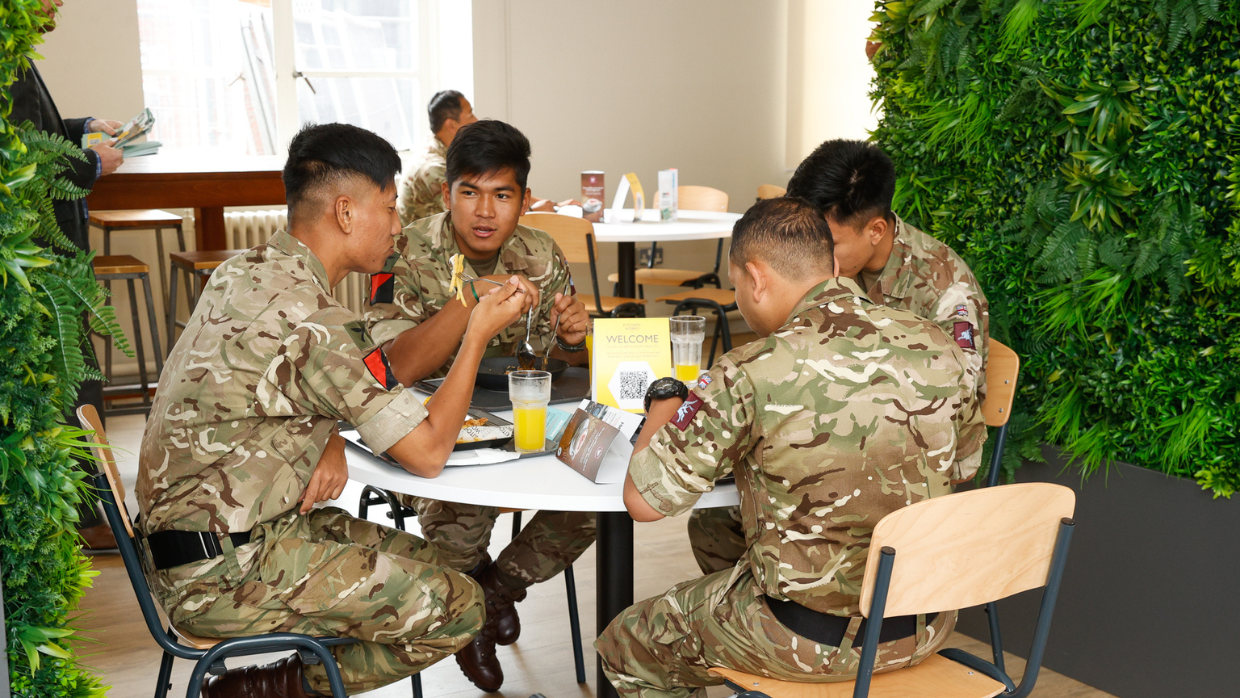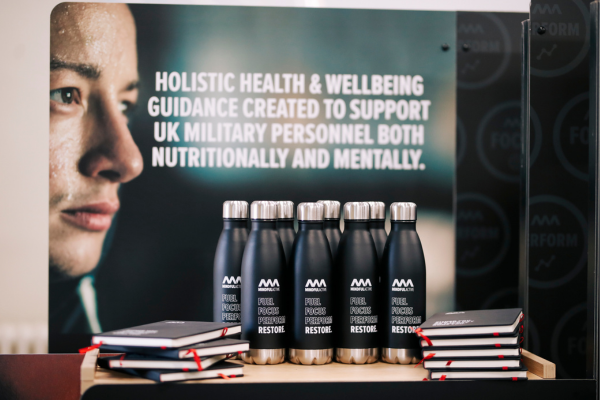
How to improve quality of life for military personnel
Every person perceives their own quality of life differently. Physical and mental health, employment status and relationships all play a key role, and living standards are often defined by people’s perceptions of themselves in the world. For military personnel, these factors are magnified and complicated by their place in their unit and their service.
Quality of life is shaped by the unique challenges and opportunities brought on by the demands of life on base. If service personnel are not healthy, motivated and comfortable, they are less effective, subsequently affecting readiness and retention.
However, by taking a more holistic approach to physical, mental and emotional health, we can help improve the quality of life across the service in small and significant ways.
Understand the impact on families
According to the 2022 Armed Forces Continuous Attitude Survey (AFCAS), 27% of serving personnel plan to leave at the end of their current engagement or commission, while a further 22% intend to leave before reaching that point. The single biggest influence on that decision is the impact of service life on family and personal life, with 59% citing it as a factor.
The sacrifice that families and dependants make has long been understood, and the Armed Forces Covenant recognises the challenges they face as well as the role they play in supporting operational effectiveness. However, when it comes to providing the kind of support that truly makes a difference, there is still much work to be done.
Living in our Shoes, a major review commissioned by the Ministry of Defence, identified several key issues and themes across all services, including:
- The impact of military life on personal relationships.
- The impact of Service life on children and young people.
- The employment and careers of spouses/partners.
- The health and wellbeing of military personnel and family members.
Lieutenant General James Swift, Chief of Defence People, highlighted the importance of “attracting and retaining the right numbers of capable, motivated individuals to deliver Defence outputs”.

In order to achieve this, our Armed Forces personnel must be confident that not only are they valued and will be treated fairly, but also that their families will be supported and treated properly.
Although there are recommendations for major policy changes, the review emphasises the importance of “small acts of kindness”, which could be as simple as people feeling welcome, or being offered help when moving to a new environment.
Such acts are the focus of Sodexo’s latest report, The Moments That Matter, which explores the simple ways in which our teams support personnel, families, and communities every day.
Maureen O’Leary, Service Manager for Sodexo at Larkhill Garrison, tells us how her 28 years as a military spouse inform her interactions with service personnel and their families every day. When a large regiment was redeployed from Germany, she pre-empted their arrival by flying out to meet the families and discuss the opportunities they would have in the United Kingdom.
I knew how they would be feeling. Military life can be daunting - you don’t know what you’re going into, so we see it as our duty to support families during that transition.

Holistic health and wellbeing
When personnel know their families are being looked after, it allows them to focus on other factors that contribute to their quality of life and, ultimately, readiness.
Physical health is a significant factor, and we believe that individuals should be empowered to take responsibility for their own wellbeing. Mindful Active, Sodexo’s holistic health and wellbeing programme, provides guidance on meals and menu choices, offering a means to match individual dietary and nutritional needs to training priorities.
Mindful Active focuses on four pillars that support physical and mental health, with menu items in the mess labelled according to the objectives they meet:
- Fuel: prepare the body for what lies ahead and sustain a healthy lifestyle.
- Focus: target body performance goals and power up brain training.
- Perform: boost energy levels and strengthen mental endurance.
- Restore: re-energise the body post-workout and reset mental wellbeing.
The programme was key to the creation and success of Junior Ranks Dining by Kitchen Works Co. - Sodexo’s response to the Army EATS challenge to modernise the mess.
The revamped service facilitates meaningful social interactions in a bright, relaxing space, which is just as important as the nutritional benefits of a well-planned menu.

Create the right environment
An environment in which military personnel can thrive, know they are supported and have access to the guidance and nutrition they need to stay fit and healthy is key to enhancing quality of life.
That’s why the physical environment and social interactions were such important considerations in the development of Village - a bright and stylish social hub designed to reflect the needs of the modern military.
The concept reflects demand for spaces where personnel can relax and socialise, reducing feelings of isolation and fostering a greater sense of community on site.
The 2022 AFCAS survey showed just 45% of personnel are satisfied with service life, while 39% reported low morale in their unit. These measures have improved in recent years, but there is still work to be done. Small acts of kindness, combined with the right institutional support and access to suitable social spaces will go a long way in improving perceptions and morale.